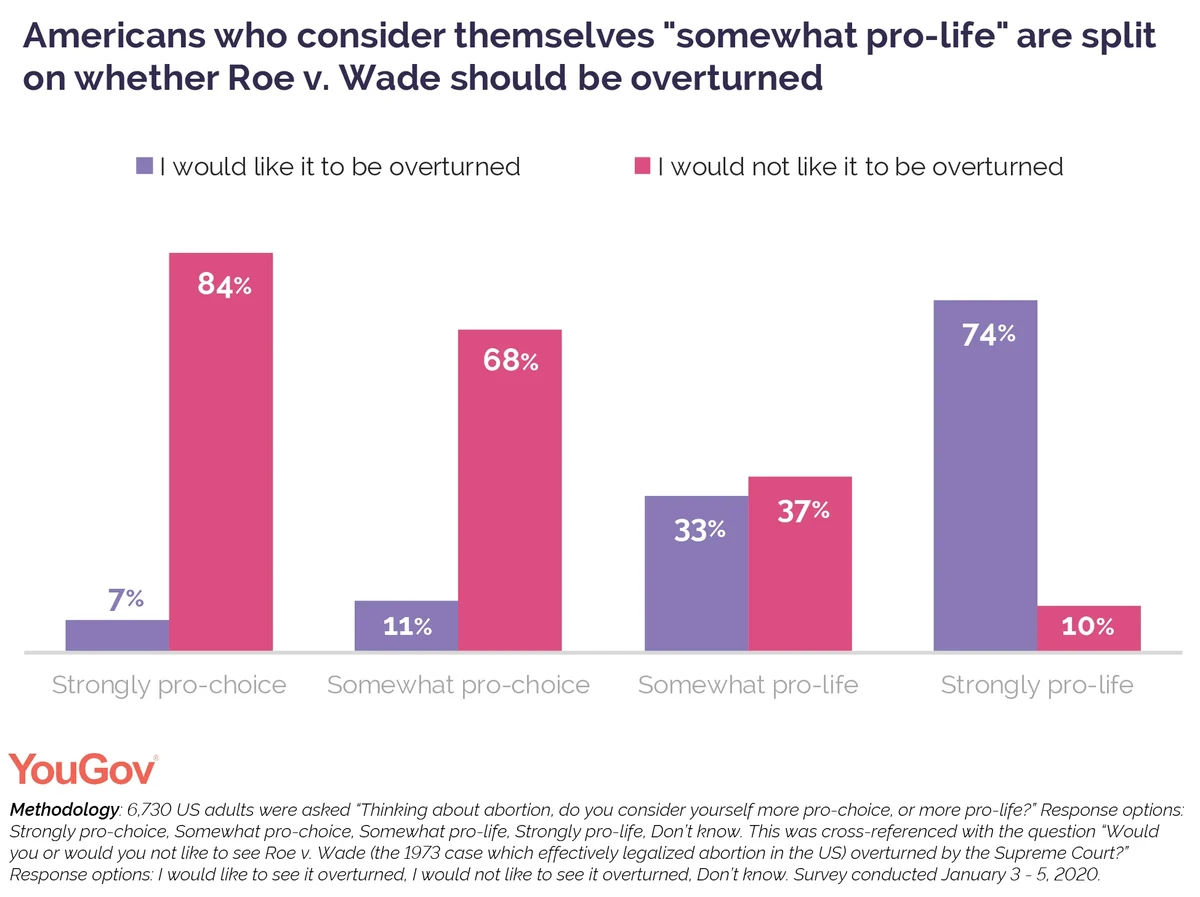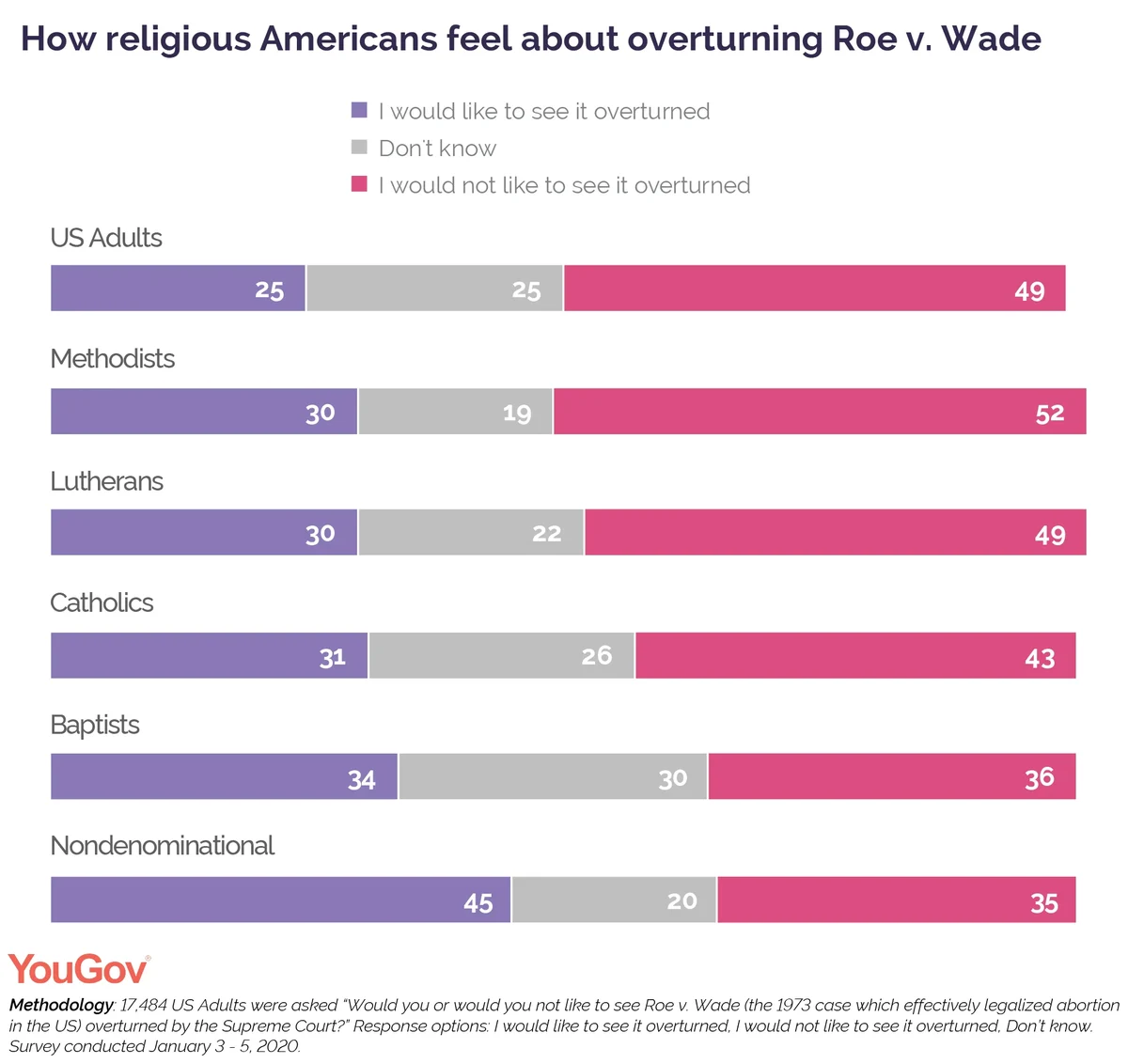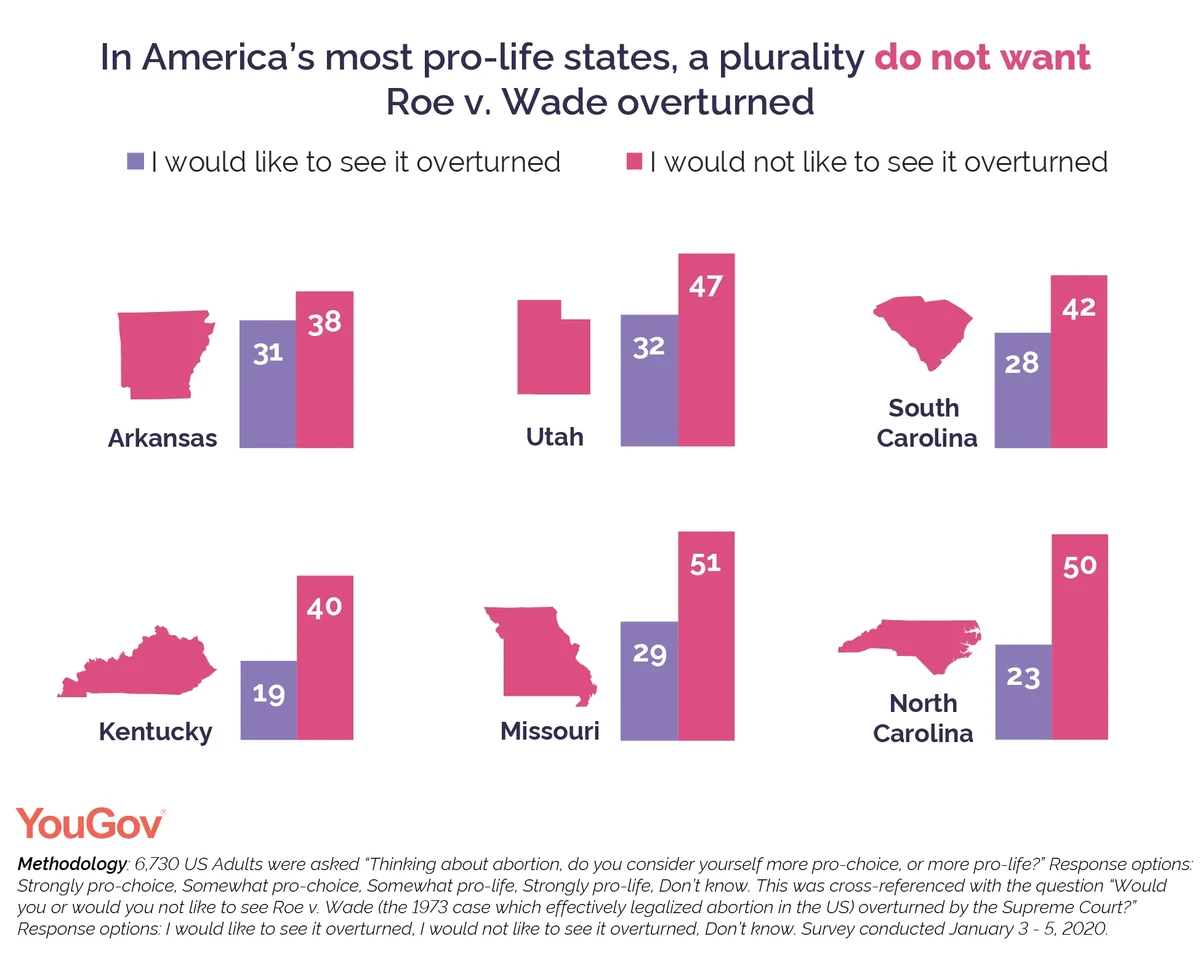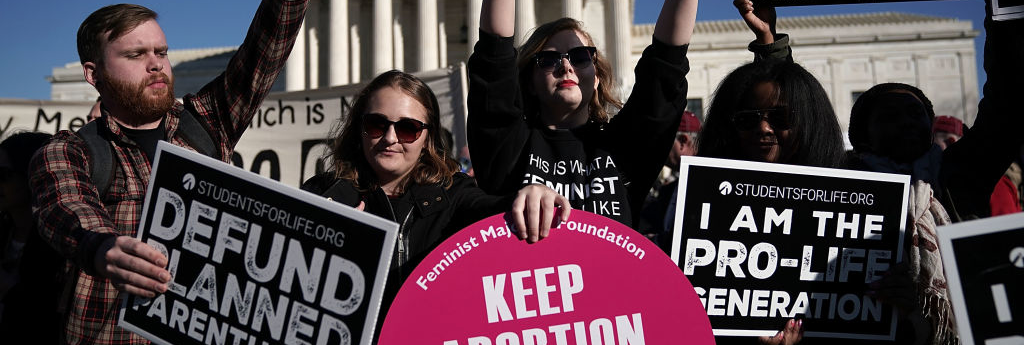On Wednesday, the Supreme Court will hear its first abortion case since President Donald Trump appointed two conservative justices to the nation’s highest court. The case, June Medical Services v. Russo, will ask the Court to decide whether to uphold a Louisiana state law that requires abortion providers to secure hospital admitting privileges.
If the case is upheld, access to abortion would be limited in Louisiana, and other anti-abortion laws would likely be passed in other parts of the country. The court case — and the Court’s reshaped ideology — raises questions about whether the Supreme Court will eventually reevaluate the landmark case that legalized abortion: Roe v. Wade. Yet a plurality of Americans — even people who call themselves pro-life — don't necessarily want Roe overturned, according to a YouGov survey of more than 17,000 Americans.
In 1973, the Supreme Court struck down a Texas state law banning all abortion. The decision, also called Roe v. Wade, effectively legalized the procedure nationwide during a woman's first trimester. In the last 47 years, Americans have grown accustomed to the law, and by two to one (49% vs 25%), Americans say they do not want to see Roe v. Wade overturned.
Many “somewhat” pro-lifers want to keep Roe v. Wade
Understanding Americans’ stance on Roe v. Wade is not as simple as looking at their opinion on abortion. Americans who call themselves “somewhat pro-life” subvert the idea that supporting access to abortion is simply polarized along pro-life and pro-choice lines. For Americans who consider themselves “somewhat pro-life,” a little more than one-third (37%) want Roe upheld and about one-third (33%) want it overturned. Three in ten (30%) are uncertain of their opinion.
But a majority of Americans who call themselves “strongly pro-choice” or “somewhat pro-choice” are certain that they do not want Roe v. Wade reversed. Similarly, a majority of those who call themselves “strongly pro-life” are certain that they do want it overturned.

One key trait distinguishes these somewhat pro-lifers from strong pro-lifers: somewhat pro-lifers are less likely to be religious than the strongly pro-life. A majority of those who are strongly pro-life (59%) say they practice a religion, compared to almost half that number (32%) for somewhat pro-lifers. About a quarter (25%) of somewhat pro-lifers say they do not belong to a religion, compared to 15 percent of strongly pro-life people.
Religious Americans split on whether Roe should be overturned
Strongly pro-life Americans are more likely than the general population to be religious, but not all religious groups want to overturn Roe v. Wade. While Americans who belong to prominent religious groups are generally more likely to want Roe v. Wade overturned when compared to Americans overall—it’s not a guarantee.
About half of Roman Catholics (49%) say they are either strongly pro-life (31%) or somewhat pro-life (18%). But despite the fact that Roman Catholics are more likely than the general public to call themselves pro-life, a plurality (43%) of Roman Catholics do not want Roe v. Wade overturned. Only one-third of Roman Catholics (31%) want it overturned.
This pattern generally follows among popular Protestant religions, as well. Americans who put themselves under the umbrella of Protestantism consider themselves more “strongly pro-life” than the general population (41% vs. 27%). But Protestants overall are split on whether Roe v Wade should be overturned: 38 percent believe it should and 38 percent believe it should not.
There are also denominations of Protestantism that consider themselves more pro-choice than pro-life, primarily the United Church of Christ (67%), Episcopalians (65%), Methodists (55%), Presbyterians (54%), and Lutherans (52%). Pluralities of each of these religious denominations do not want Roe overturned.
In contrast, Nondenominational Americans (61%) and Baptists (55%) are more likely to consider themselves pro-life than pro-choice. Even with that majority of pro-lifers, fewer than half (45%) of Nondenominational Americans want Roe v Wade overturned. Baptists are split on whether it should be overturned or not (34% vs 36%).

How the states view Roe v. Wade
At the state level, lawmakers often propose abortion-related legislation that could trigger a legal challenge to Roe v. Wade. But even in the US states where residents identify as the most strongly pro-life, a plurality does not want Roe overturned. In Louisiana, the state that will send the Supreme Court its upcoming case (June Medical Services v. Gee) a plurality also wants to maintain Roe v. Wade. About three in ten (28%) want the decision overturned, while about two in five (39%) want it maintained.
Among US states where the most residents identify as “somewhat pro-life” or “strongly pro-life” are Arkansas (53%), Kentucky (51%), South Carolina (50%), Utah (50%), Missouri (49%), and North Carolina (47%). In each of them, there is at least a seven-point gap where more people want to see Roe v. Wade upheld, rather than overturned.

Related: What the Confederate flag means in America today
Methodology: Total weighted sample size was 17,456 US adults aged 18+. Participants were asked, “Would you or would you not like to see Roe v. Wade (the 1973 case which effectively legalized abortion in the US) overturned by the Supreme Court?” Response options were: I would like it to be overturned, I would not like it to be overturned, or Don’t know.” Survey conducted from January 3 - 5, 2020. This was cross-referenced with a question asked of 6,730 US adults, “Thinking about abortion, do you consider yourself more pro-choice or more pro-life?” Response options were strongly pro-choice, somewhat pro-choice, somewhat pro-life, and strongly pro-life. The responding samples are weighted to provide a representative sample of the United States.
Image: Getty











